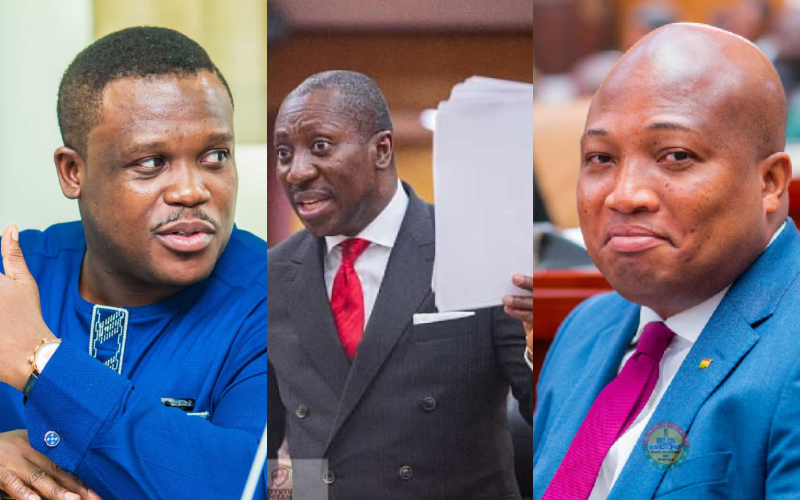The nomination process for ministerial appointments in Ghana has hit a snag, with Minority Leader, Alexander Afenyo-Markin, demanding further documentation from two nominees before their approval can be finalized. Samuel Okudzeto Ablakwa, nominated for Foreign Affairs, and Samuel Nartey George, nominated for Communications, are required to submit outstanding documents promised during their vetting before the Appointments Committee. Afenyo-Markin has made it clear that until these documents are provided, the Committee cannot complete their report, and a secret ballot will be employed to decide their fate. This insistence on thorough documentation highlights the importance of transparency and accountability in the appointment process, ensuring that nominees are fully vetted and their qualifications and claims are substantiated.
Afenyo-Markin’s call for documentation underscores a commitment to due diligence and a desire to ensure that all necessary information is considered before finalizing the appointments. His statement, delivered on the floor of Parliament, emphasized the need for Ablakwa and George to fulfill their commitment to provide the requested information. This demand reflects a broader concern within the Appointments Committee to avoid rushing the approval process and to ensure that all members have access to the necessary information to make informed decisions. The move towards a secret ballot in the absence of the requested documents further emphasizes the seriousness with which the Minority Leader views this matter, suggesting that the missing information is potentially critical to the assessment of the nominees’ suitability for their respective roles.
While the approval process for Ablakwa and George remains pending, two other nominees, Abdul Rashid Alhassan and Ibrahim Murtala Mohammed, are poised for smoother confirmation. Afenyo-Markin indicated that there were no outstanding issues with their nominations, suggesting that their vetting proceedings were satisfactory and raised no significant concerns. This distinction between the nominees highlights the individualized nature of the vetting process, where each candidate’s qualifications and background are scrutinized independently. The varying outcomes also demonstrate the importance of the documentation requested from Ablakwa and George, as it suggests that their cases require further clarification before a final decision can be reached.
Afenyo-Markin’s insistence on the documentation isn’t rooted in obstructionism but rather a commitment to a fair and thorough evaluation process. He cited the case of Hon. Emmanuel Amarh Kofi Boah, where the Committee revised their initial position after receiving satisfactory supplementary documents. This example demonstrates a willingness to reconsider and adjust decisions based on new information, emphasizing the importance of the documentation in enabling informed decision-making. It also highlights the Committee’s commitment to ensuring that all nominees are treated equitably and that decisions are made based on a comprehensive understanding of their qualifications and background.
The demand for these documents signifies a broader emphasis on transparency and accountability within the Ghanaian political landscape. By requiring nominees to substantiate their claims with concrete evidence, the Appointments Committee is upholding the principles of good governance and ensuring that appointments are made based on merit and substantiated qualifications. This commitment to transparency also fosters public trust in the appointment process, demonstrating that decisions are not made arbitrarily but are based on a thorough and objective evaluation of each candidate.
Afenyo-Markin’s call for documentation from Ablakwa and George serves as a critical step in the ongoing ministerial appointment process. It underscores the importance of due diligence, transparency, and accountability in selecting individuals for these important roles. The outcome of this request will significantly impact the future of these two nominations and further shape the composition of the Ghanaian government. The Committee’s willingness to revise its stance based on provided documentation suggests a commitment to fairness and a dedication to ensuring that the most qualified candidates are appointed to serve the nation. This focus on thorough vetting and transparency ultimately strengthens the democratic process and reinforces public trust in the government’s selection procedures.














